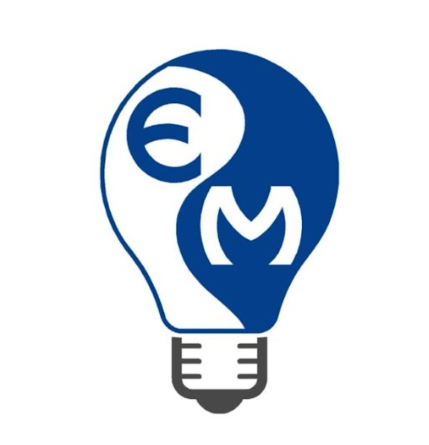Guide to Pay-Per-Click Advertising & Google Ads for Beginner
Ultimate Guide to Pay-Per-Click Advertising and Google Ads for Beginners
Benefits of Pay-Per-Click (PPC) advertising and Google Ads:
✅ Instant Visibility
✅ Advanced Targeting
✅ Cost Control
✅ Measurable ROI
✅ Flexible Campaigns
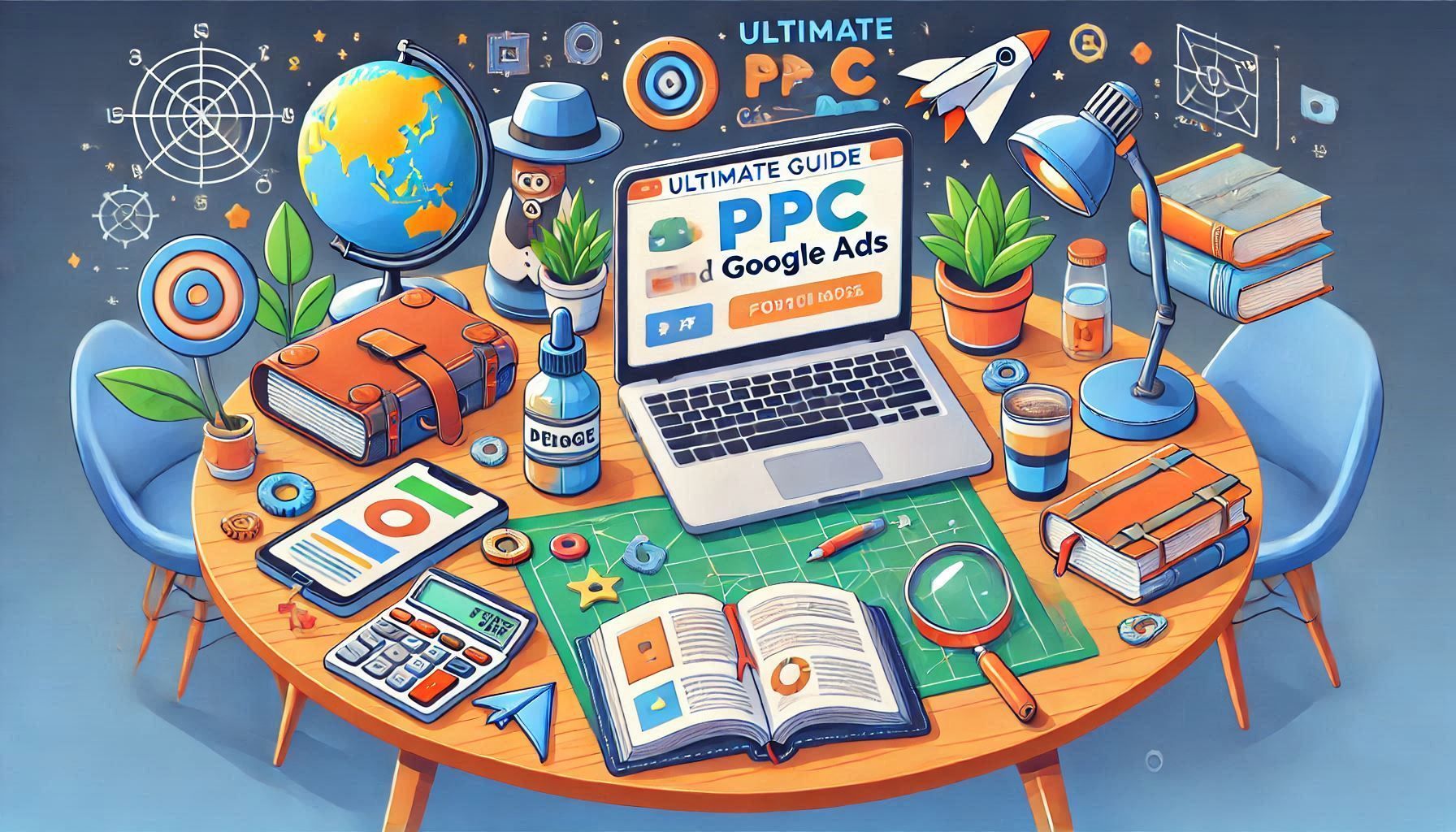
Contact Us
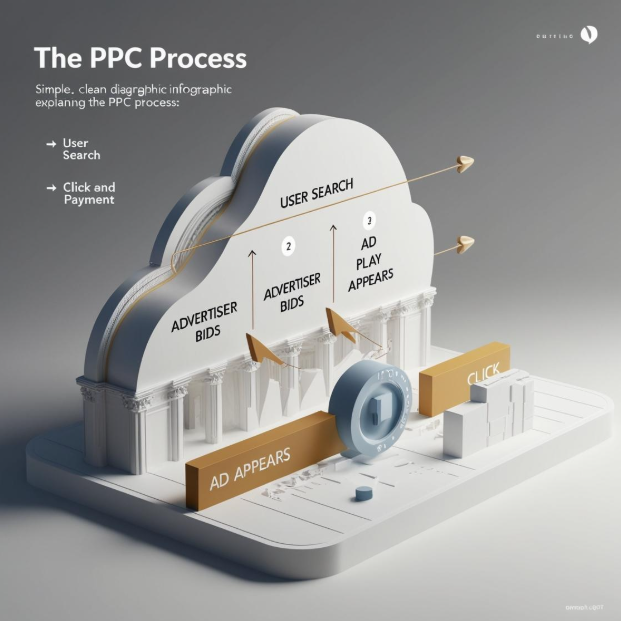
What is Pay-Per-Click Advertising (PPC)?
PPC (pay-per-click) advertising is a digital advertising model where advertisers pay a fee for each click on their ad. Essentially, this is a way of buying traffic to your site, as opposed to striving to bring in that traffic through organic means. PPC can take on many different forms, for example, search ads, display ads, shopping ads, and ads on social media. The biggest platform for PPC is Google Ads, where businesses bid on keywords that pertain to their products or services.
The Process Behind PPC: A Step-by-Step Breakdown
- Identify Your Campaign Goals
- Determine the purpose of your PPC campaign.
- Decide whether the aim is to rank higher against competitors, increase visibility, or attract new clients
- Keyword Research
- Understand what keywords your target audience is searching for on platforms like Google.
- Use tools like Google Keyword Planner to find relevant keywords.
- Make a list of these keywords, this will serve as the foundation for the next step.
- Bidding on Keywords
- Advertisers compete for ad placements by bidding on chosen keywords.
- Higher bids increase the likelihood of ads showing up in prominent positions.
- It's not just about the highest bid; other factors come into play.
- Quality Score
- Google Ads evaluates the Quality Score of an ad based on:
- The relevance of the ad to the keyword.
- The user experience on the landing page.
- A higher Quality Score can reduce costs and improve ad placements.
- Ad Placement
- Ad placement is based on the advertiser's bid and the ad's Quality Score.
- Ads can appear at the top of search engine results pages (SERPs) or in other high-visibility areas.
- User Engagement
- When a user clicks on an ad, the advertiser pays a fee based on their bid and competition for the keyword.
- The PPC model ensures businesses only pay for engagement (clicks), making it cost-effective.
- Monitor and Optimise
- Regularly review campaign performance to ensure it aligns with goals.
- Adjust bids, refine keywords, and improve ad content based on performance metrics.
Key Takeaways
- PPC is a measurable and efficient advertising model that allows businesses to pay only for user engagement.
- Success requires careful planning, continuous monitoring, and optimisation.
- The process consists of finding a balance between competitive bidding and ensuring that the ads are high-quality and relevant.
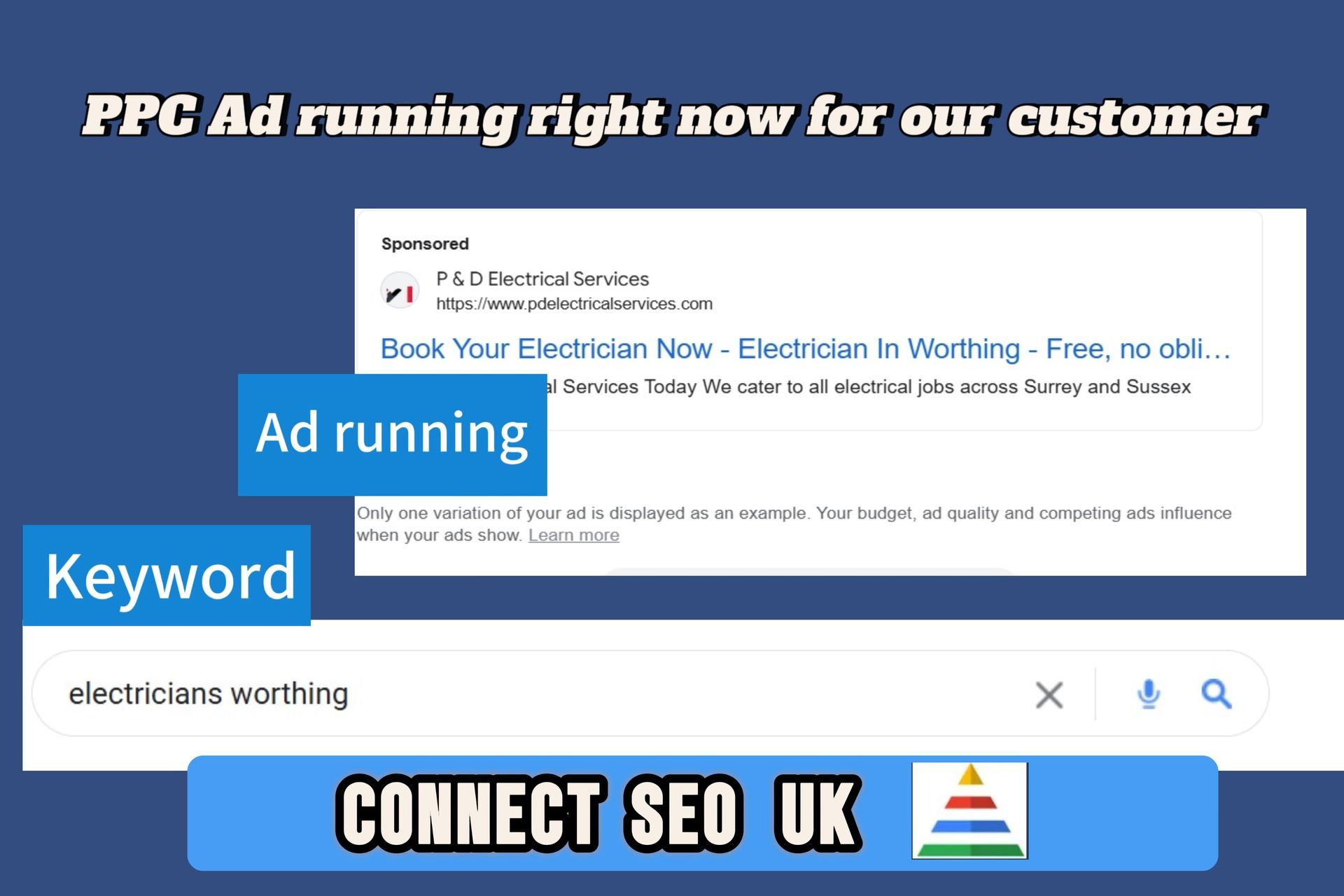
Contact Us
Why Should Businesses Use PPC?
Businesses of all sizes should consider using PPC as part of their marketing strategy.
Instant Visibility:
Unlike Search Engine Optimisation (SEO), which can take months to give results, PPC provides instant visibility. Once your campaign is live, your ad is eligible to appear in front of users right away. This is especially beneficial for businesses looking to generate quick traffic, promote time-sensitive offers, or launch new products.
Targeting Capabilities:
PPC allows for advanced targeting options, making it easier to reach specific audiences based on factors such as:
- Geographic location: You can target ads based on location, such as local, national, or global targeting.
- Demographics: Ads target specific age groups, genders, or income levels.
- Interests and behaviours: Users’ online activities and interests can be tracked to make ads more relevant.
- Devices: You can target users on mobile devices, desktops, or tablets based on the ad format and user preference.
By using these targeting capabilities, you can focus on high-intent customers—those who are actively searching for solutions and are most likely to convert into paying customers.
Cost Control and Flexibility:
Companies can have the flexibility to control their budgets with PPC. You can set daily or monthly limits, meaning you’ll never exceed your desired spending with the help of Google Ads. Based on performance, you can scale up or down your campaigns. PPC campaigns can be tailored to suit large and small budgets by doing bid adjustments and budget control.
Measurable ROI:
One of the most transparent ways to advertise is pay-per-click (PPC) campaigns. Businesses can use tools like Google Ads and Google Analytics to track performance metrics. Among the most popular are Click-Through Rate (CTR), Cost-Per-Click (CPC), and Conversion Rate. Insights derived from these data points give a clear picture of campaign performance and efficiency, which can be even more finely tuned to achieve payback that's higher than it was yesterday.
The Google Ads Platform
Google Ads is the leading platform for PPC advertising, it provides companies with the tools and resources needed to run successful paid search campaigns. Google attracts a sheer volume of traffic, which makes Google Ads highly effective. Google Ads ensures that your ads have a high potential for exposure, with billions of searches conducted every day.
How Google Ads Works
Google Ads operates on an auction-based system. When you create a campaign, you select keywords relevant to your business and then bid on those keywords. Your ad may be shown in the search results when a user types in a search query that matches your chosen keyword. Google also considers the Quality Score of your ad, which includes the relevance of your ad, your landing page experience, and historical performance. Bidding isn’t the only factor determining ad placement.
You can still earn a premium ad placement by improving the quality of your ads and landing pages, even if your bid isn’t highest.
Ad Placement
Ads on Google can appear across multiple platforms, including Google Search, YouTube, and millions of partner websites that make up the Google Display Network (GDN). The platform allows advertisers to target specific networks and platforms based on their goals and audience preferences.
- Google Search Ads: These are the text-based ads that appear at the top or bottom of the search results.
- YouTube Ads: These are video-based ads that can appear before, during, or after YouTube videos.
- Google Display Network Ads: These visual ads appear on partner websites, apps, and blogs within the GDN.
Auction System and Cost-Per-Click (CPC)
Google Ads ensures that you only pay for actual engagement with your ads with the auction system. The Cost-Per-Click (CPC) you pay depends on your bid amount, the competitiveness of the keyword, and the Quality Score of your ad.
The Role of Quality Score
Google’s Quality Score helps companies determine how much you pay per click and where your ad appears. Google uses Quality Score as a metric to evaluate the relevance and usefulness of your ad based on factors such as the click-through rate (CTR), landing page experience, and ad relevance. Ads with higher Quality Scores generally perform better, have lower CPC, and appear in more prominent positions.
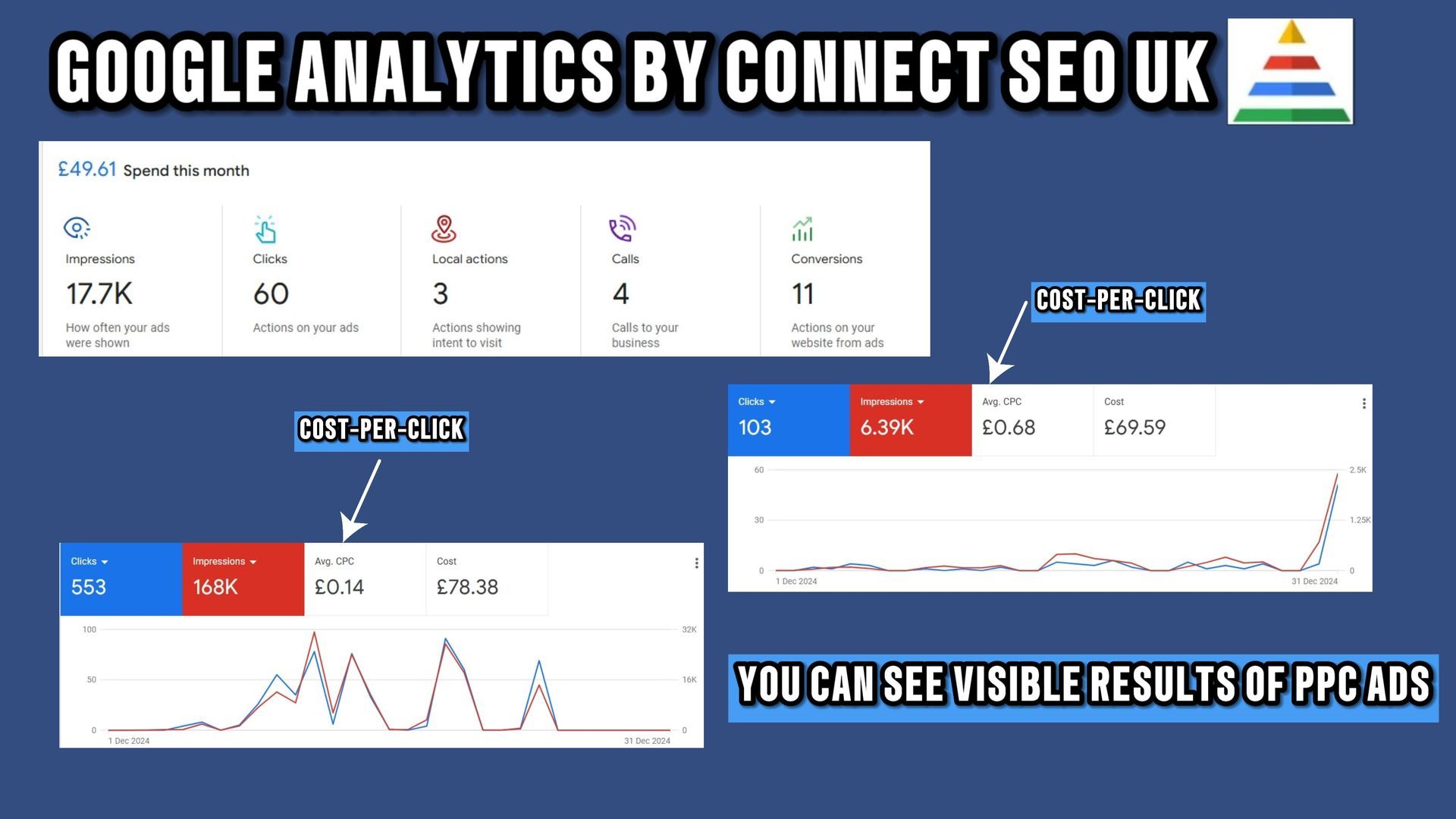
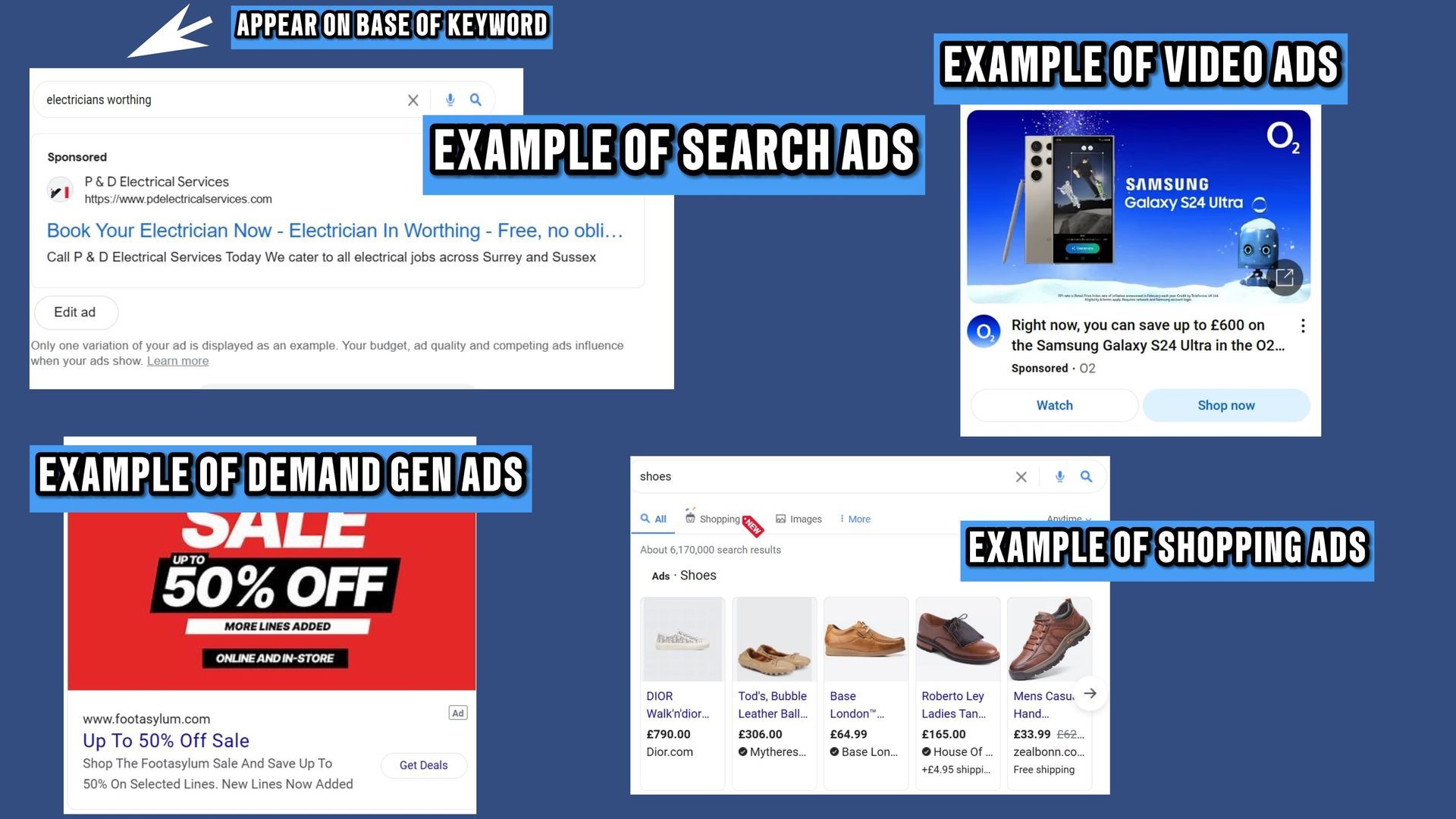
How to Get Started with PPC and Google Ads
Now that you understand the basics of PPC and Google Ads, let’s go through the steps required to create a successful campaign.
Step 1: Define Your Goals
Before launching a PPC campaign, it’s important to define your marketing goals. Are you looking to increase website traffic, generate leads, or boost sales? Your goals will determine the best approach for your campaign.
Step 2: Conduct Keyword Research
Keyword research is crucial for identifying the right keywords to target in your PPC campaign. Tools like Google Keyword Planner can help you find the most relevant and cost-effective keywords for your business.
Step 3: Set Your Budget
PPC campaigns require careful budget planning. You should determine how much you’re willing to spend daily or monthly and how you want to allocate your budget across different ad groups or keywords.
Step 4: Create Compelling Ad Copy and Creatives
Your ads should be clear and include a compelling call-to-action (CTA). Invest in high-quality visuals for display ads, shopping ads, or social media ads to grab attention and engage users.
Step 5: Target Your Audience
Refine your audience targeting using demographic, geographic, and behavioural data. This helps ensure ads are shown to the right people at the right time.
Step 6: Monitor, Optimise, and Refine
PPC campaigns require continuous monitoring and optimisation. Analyse metrics such as CTR, CPC, and conversion rates to evaluate performance and modify your strategy for improved outcomes.
Benefits of PPC Advertising
PPC advertising offers several advantages:
- Instant Results: You can generate traffic as soon as your ads go live.
- Highly Targeted: Reach the right audience based on detailed criteria.
- Budget Flexibility: Control your spending and scale your campaigns.
- Measurable ROI: Track performance and optimise campaigns based on data.
Challenges to Watch Out For in PPC
Despite its many benefits, PPC advertising comes with challenges, such as:
- High Competition: Competitive keywords can increase the CPC.
- Click Fraud: Malicious clicks can waste your budget.
- Complexity: PPC platforms can be overwhelming for beginners and require expertise.
- Continuous Monitoring: Unlike other marketing methods, PPC campaigns require ongoing management.
Best Practices for Successful PPC Campaigns
- Use negative keywords to exclude irrelevant terms.
- A/B test ads regularly to improve performance.
- Align ads with landing pages for higher conversions.
- Track conversions using tools like Google Analytics.
PPC vs. Other Advertising Models
- PPC vs. CPM (Cost-Per-Thousand Impressions): PPC is action-based, while CPM is focused on visibility.
- PPC vs. CPA (Cost-Per-Acquisition): PPC charges per click, while CPA charges per completed action.
Real-world examples of Successful PPC Campaigns
- E-Commerce Store: An e-commerce business doubled sales in three months using Shopping Ads.
- Local Business: A bakery used location-targeted PPC to increase foot traffic by 30%.
Final Word:
PPC advertising, particularly through platforms like Google Ads, is a powerful tool for businesses to drive visibility, traffic, and conversions. With the right strategy, companies can leverage PPC to achieve rapid results, highly targeted outreach, and measurable ROI. By following best practices, tracking performance, and continuously refining campaigns, businesses can harness the full potential of PPC to fuel their growth.
We have made several companies rank using these tactics.
Ready to take your PPC to the Next Level?
If you're ready to start with PPC, explore Google Ads and create your campaigns today. For companies looking to optimise their current campaigns, Connect SEO UK offer a free consultation or PPC audit to help improve performance and maximise ROI.








